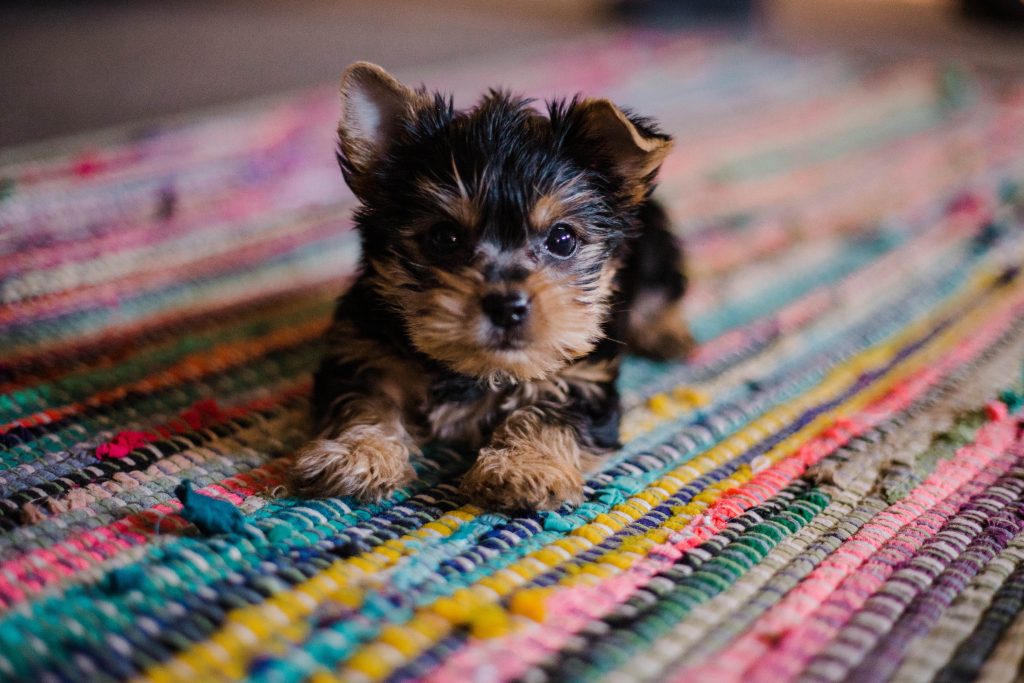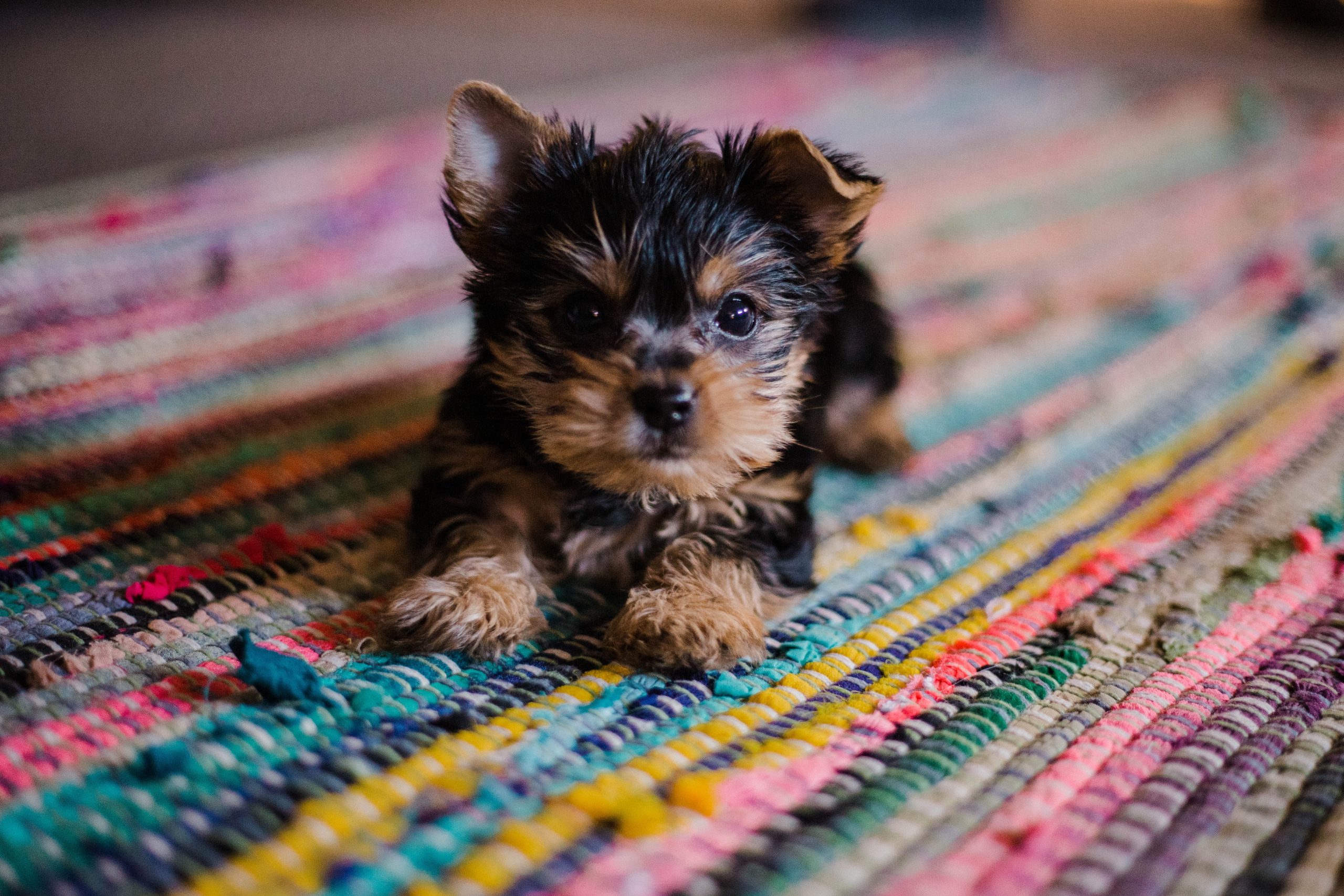How Do I Potty Train My Puppy?
Potty-training a puppy can seem daunting, but it is achievable by every pet owner with patience and consistency. This blog post will teach you the steps necessary to potty-train your puppy. Let’s explore some of the methods that will help you to teach your dog where and when they should go potty. These tips will have you potty training your dog in no time.

When to Start Potty Training Your Puppy
Potty-training a puppy can seem daunting, but it is achievable by every pet owner with patience and consistency. This blog post will teach you the steps necessary to potty-train your puppy. Let’s explore some of the methods that will help you to teach your dog where and when they should go potty. These tips will have you potty training your dog in no time.
When Should You Start Potty-Training Your Puppy?
Potty-training a puppy may seem daunting, but the right approach and information can make it a successful and smooth process. Timing is one of the most crucial factors when potty-training a puppy. Start too early or late and you may experience frustration. This section will cover the signs your puppy is ready to potty train and the ideal age to begin.
Signs that Your Puppy Is Ready to Potty Train
It’s important that your puppy is ready to potty train before you start. Potty training your puppy can be a success if you notice these signs:
- Searching for a place to poop or pee
- Circling a specific area
- Whining, barking or looking at the door while whining
- Scratching at the door or pawing it to get outside
- Feeling uncomfortable or restless
You can tell if your dog is ready to potty train by noticing any of these signs!
What is the Best Age to Start Potty-Training?
Potty-training should start as soon as possible but not before the puppy is ready. Potty training should begin between 12-16 weeks of age. This age range is ideal for potty training because puppies have better bladder control. Every puppy is unique, so you should pay attention to the individual needs and abilities of your puppy.
Potty training takes patience and time. You can’t expect to train your puppy overnight. It’s crucial to be consistent and to stick to a schedule.
How to Potty Train a Puppy
Potty-training your puppy may seem daunting, but it is not impossible. It just takes a bit of patience and consistency. Here are some tips on how to potty-train your pet.
Select a Potty Area
Choose a potty area that is easily accessible and away from where your puppy sleeps or eats. This area should not be near where your puppy sleeps or eats. It should also be easily accessible. Use a consistent command such as “go to the bathroom” to teach your puppy that this is the place to use the toilet.
Create a Routine
Potty-training your puppy is all about establishing a routine. You should take your puppy to the designated potty place first thing in morning, right after eating, and just before bedtime. Puppies will also need to potty when they are playing or naps. It’s important to be consistent, so create a schedule for your puppy and yourself.
Use Positive Reinforcement
Potty training a puppy requires positive reinforcement. Praise your puppy and reward them when they go potty on their designated area. Positive reinforcement helps your puppy learn that going to the toilet in their designated area is good.
Consider Crate Training
Crate training is a useful tool for potty-training your puppy. A crate is a great way to teach your puppy to control their bladder and bowels. Choose a crate the right size for your pup and don’t use it as a punishment.
Potty training problems and solutions
Potty-training a puppy is a difficult task. Some puppies may learn quickly while others might struggle with some aspects of potty-training. Here are some potty-training problems that can be solved.
Accidents in the Home
It’s not unusual for puppies to make accidents in the house. This is especially true during the early stages when potty-training. It can be frustrating to new puppy owners. However, accidents are part of the potty training process.
It is important to always supervise your dog in order to minimize accidents. When you cannot supervise them, confine them to a crate. After your dog has eaten, drank, or woken up from a snooze, take them outside. When they potty outdoors, use positive reinforcement such as praise and treats.
If you do have accidents inside, use an enzyme cleaner that is designed to clean pet mess. Ammonia-based cleaning products can cause your dog to return to the same area.
Refusing to go outside
Some puppies will refuse to use the potty outside. It could be because of fear, anxiety or discomfort.
Make your dog’s outdoor area more inviting to encourage them to go out. Use a verbal command, like “Go Potty”, to direct them. Keep them on leash to prevent them from getting distracted. Bring treats for them to reward when they go potty outdoors.
Consult a professional behaviorist or trainer if your puppy refuses to leave the house.
Regression in Potty-Training
Even after a period of good potty-training, it is common for puppies to fall backwards. It can be caused by changes in routine, medical problems, or stress.
Regressions can be addressed by going back to the basics. Use positive reinforcement, increase supervision and take your puppy out more often. Punishing your puppy can cause anxiety and fear around potty-training.
Consult your veterinarian if regression continues to occur. Professional trainers or behaviorists may be able provide extra support and guidance.
Potty training: Additional Tips
Potty-training your puppy is a difficult task, but it’s possible to succeed with patience and consistency. Here are some tips to help make it easier.
Be patient and consistent
Accidents will happen. Potty training is a long process. It is important to be consistent and patient in your training. Praise your puppy when it goes potty on the correct spot. Do not reprimand them if they have an indoor accident. Clean up the mess and then continue your training.
Maintain a regular feeding schedule for your puppy
Potty training can be made easier by keeping your puppy on a consistent feeding schedule. You can predict when your puppy will need to potty by scheduling meals. Puppies tend to need to potty right after eating. You can also control the amount of water they have access to to predict when you will need to take them out.
You can use an enzyme cleaner to clean up accidents
It is important to clean up any accidents that occur during potty-training. To eliminate the smell completely, use an enzyme cleaner. If your dog can still smell it, it is more likely to go potty there again.
Conclusion
Potty training your dog requires patience, consistency and positive reinforcement. You should stick to a schedule, take your puppy out frequently and praise them for going potty where you want. It’s okay for accidents to happen. However, it is important to not punish your puppy because this can cause anxiety and fear. Clean up the mess and keep on with your training. Keep an eye out for your puppy’s bodylanguage and immediately take him outside if he shows signs of needing to pee. Your puppy will eventually learn how to potty train and you can enjoy a clean, happy and healthy home.

